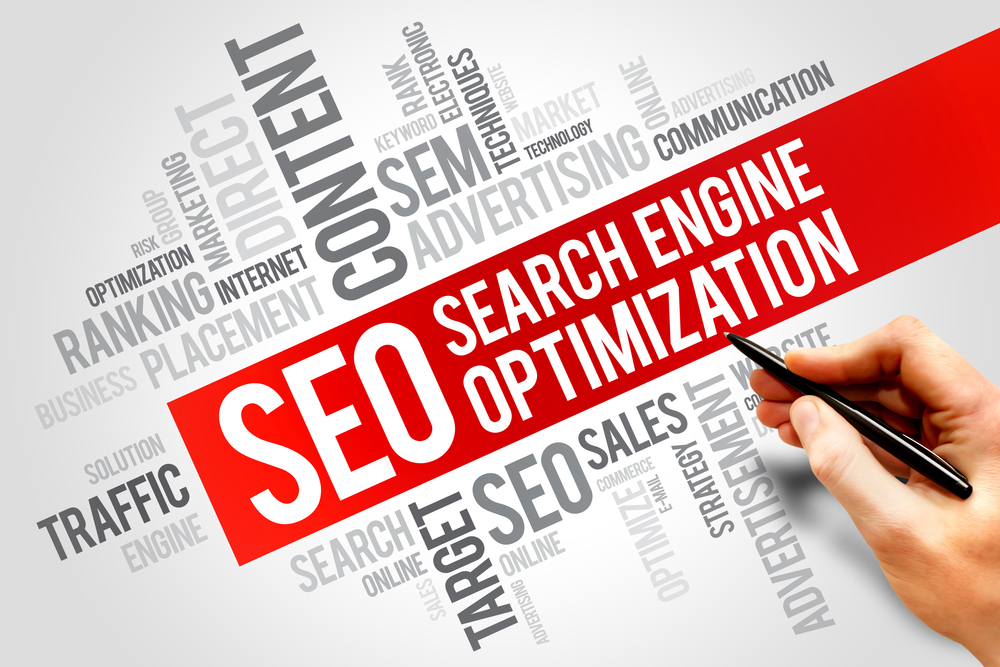
Boost Website Rankings with Essential SEO & Link Building Techniques

In today's digital age, having a strong online presence is crucial for businesses of all sizes. And when it comes to driving organic traffic and increasing visibility, search engine optimization (SEO) plays a vital role. SEO is the process of optimizing your website so that it ranks higher in search engine results pages (SERPs). With effective SEO techniques and link building strategies, you can significantly boost your website rankings and attract your target audience. In this article, we will explore some essential SEO and link building techniques that can take your website to new heights.
1. The Importance of On-Page SEO (search engine optimization)
On-page SEO refers to the optimization of individual web pages to rank higher and earn more relevant traffic from search engines. It involves various elements such as keyword research, optimizing meta tags, optimizing URL structures, and improving website speed. By implementing on-page SEO (or SEM) techniques, you can make your website more accessible to search engine crawlers, resulting in better visibility and higher rankings.
One crucial aspect of on-page SEM/SEO is keyword research. Identify keywords that are relevant to your business, have a high search volume, and low competition. These keywords should be strategically placed in your content, meta tags, and URLs. However, avoid keyword stuffing, as search engines prioritize high-quality content that benefits users.
Pay attention to your meta tags, specifically the meta title and meta description. These tags appear in SERPs and can significantly impact click-through rates. Craft compelling and relevant meta tags that entice users to click on your website.
Website loading speed is another critical factor in on-page SEO/SEM . A slow website not only frustrates users but also negatively affects your search engine rankings. Optimize your images, minify code, and leverage browser caching to improve your website's loading speed.
2. Harness the Power of Link Building
Link building is an off-page SEO technique that involves acquiring hyperlinks from other websites to your own. These links act as votes of confidence for search engines, indicating that your website is reputable and valuable. Link building helps to improve your website's authority, which positively impacts its rankings in search results.
There are several strategies you can utilize for effective link building:
a) Guest Blogging: Identify reputable blogs in your industry and contribute valuable content as a guest blogger. In return, you can include a link back to your website, allowing readers to discover your brand.
b) Influencer Outreach: Build relationships with influencers in your niche and request them to mention or link to your content. Their support can significantly improve your website's visibility and credibility.
c) Broken Link Building: Find broken links on other websites and offer your own content as a replacement. This way, you not only help website owners fix their broken links but also gain a valuable backlink in return.
d) Social Media Promotion: Share your content on social media platforms and encourage others to share it as well. This helps increase the visibility of your content and can lead to more natural backlinks.
3. Optimize Your Website for Mobile
As the majority of internet usage occurs on mobile devices, having a mobile-friendly website is no longer optional; it's essential. Mobile optimization plays a crucial role in SEO and can significantly impact your website's rankings.
Ensure your website is responsive, adapting to different screen sizes seamlessly. Slow-loading pages, unclickable buttons, or distorted images can drive users away and result in poor rankings. Improving your website's mobile user experience not only benefits your SEO but also enhances user engagement and conversions.
4. Focus on User Experience
User experience (UX) is central to SEO success. Search engines prioritize delivering the best possible experience to users, so optimizing your website for user satisfaction is crucial.
Make sure your website is easy to navigate and intuitive. A cluttered layout, confusing menus, or broken links can frustrate users and negatively impact their experience. Aim for clean and organized design, allowing visitors to find the information they need effortlessly.
Page load speed is another essential aspect of user experience. A slow website can lead to high bounce rates as visitors become impatient waiting for content to load. Optimize your site's speed by compressing images, leveraging browser caching, and using caching plugins.
5. Frequently Update Your Content
Regularly updating your website with fresh and high-quality content is a fundamental SEO technique. Search engines love new content, and it shows that your website is active and relevant. Aim to publish new blog posts, articles, or other useful content on a consistent basis.
Ensure your content is well-written, engaging, and valuable to your target audience. Incorporate relevant keywords naturally throughout your content and focus on providing solutions to users' problems or answering their questions. This will increase your chances of ranking higher in search results and earning organic traffic.
Frequently Asked Questions
Q1: How long does it take for SEO techniques to improve website rankings?
A1: SEO is a long-term strategy, and results may vary depending on various factors such as competition, website size, and industry. Generally, it takes several months of consistent effort to observe significant improvements in website rankings.
Q2: Can I achieve good rankings without link building?
A2: While on-page SEO is crucial, link building plays a vital role in improving website rankings. High-quality backlinks act as signals of authority and credibility to search engines, helping to boost your website's rankings.
Q3: Is it necessary to hire an SEO professional?
A3: Hiring an SEO professional can be beneficial as they have the expertise and experience to implement effective strategies tailored to your business. However, it is possible to learn and implement SEO techniques yourself by staying updated with industry trends and best practices.
Q4: Can social media activity impact SEO rankings?
A4: Social media activity indirectly impacts SEO rankings by increasing brand visibility and driving traffic to your website. While social media signals are not direct ranking factors, increased website traffic and engagement can positively influence your rankings.
Q5: Is mobile optimization essential for SEO?
A5: Yes, mobile optimization is crucial for SEO. With the majority of internet users accessing websites through mobile devices, search engines prioritize mobile-friendly websites. Failing to optimize for mobile can negatively impact your website's rankings and user experience.
In conclusion, implementing essential SEO techniques and link building strategies is vital to boost your website rankings and attract your target audience. Focus on on-page SEO elements, optimize your website for mobile, and provide a great user experience. Consistently update your content and leverage link building opportunities to improve your website's authority. By following these practices, you can enhance your website's visibility, rank higher in search results, and achieve long-term success in the competitive online landscape.
Other useful resources
- https://www.seoguru24.com/promote-website/
- https://www.seoguru24.com/directory/
- https://www.seoguru24.com/services/seo/